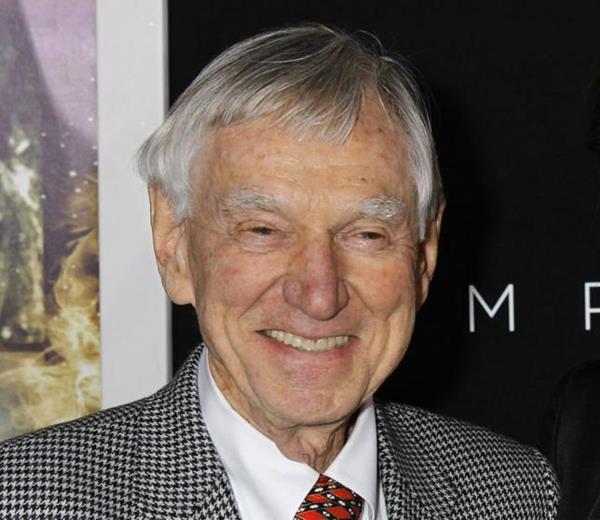|
Deals
| Thu Aug 27, 2015 2:03pm EDT
Dole CEO found liable for $148.2 million
over 2013 buyout
BY JONATHAN STEMPEL
|

David H. Murdock, chairman of Dole Foods in Hollywood in this
December 6, 2010 file photo.
Reuters/Fred Prouser/Files
|
David Murdock, the billionaire chief executive of Dole Food Co, must
pay $148.2 million of damages to shareholders he shortchanged when he
took the fruit and vegetable producer private in 2013, a Delaware
judge ruled on Thursday.
Delaware Vice Chancellor Travis Laster said the $1.2 billion buyout
undervalued Dole by 17 percent, and that the company was worth $16.24
per share rather than the $13.50 that Murdock paid.
Thursday's award is among the largest in a class action lawsuit
alleging that a company sold itself for too low a price. Most large
U.S. corporate mergers are challenged in court.
The judge said Murdock, 92, and recently retired Chief Operating
Officer C. Michael Carter should make up the shortfall after helping
depress the share price so Murdock, who then owned 40 percent of Dole,
could buy the rest at a lowball price.
Laster held the men responsible for Dole's downplaying its ability to
boost profit by cutting costs and buying farms, and canceling a stock
buyback. He also said Carter actually engaged in fraud.
"Although facially large, the award is conservative to what the
evidence could support," Laster wrote in his 106-page decision,
following a nine-day trial in February.
Deutsche Bank AG, Murdock's main bank, was held not liable because it
did not knowingly participate in the wrongdoing. Murdock is worth $3.4
billion, Forbes magazine said.
Dole declined immediate comment on behalf of the Westlake Village,
California-based company, Murdock and Carter. Deutsche Bank
spokeswoman Renee Calabro declined to comment.
While objecting shareholders had sought higher damages, their lawyer
Stuart Grant called the decision a "decisive" victory.
"It wakes insiders and investment banks on their proper roles in a
management-led buyout, and shows that management can't dictate the
terms and the flow of information," he said in an interview. "It
shouldn't be a Wild West."
NOT A "CONFUSED OLD MAN"
A high school dropout, Murdock was Dole's chief executive from 1985 to
2007, and returned to that role in 2013.
He had taken Dole private in 2003 and sold 60 percent in a 2009
initial public offering, in part to pay down debt as the U.S. economy
struggled.
Murdock said he hoped through the 2013 buyout to combine Dole with his
North Carolina research center, which seeks to unlock secrets of
health and longevity.
But shareholders portrayed the move as a power play at their expense,
a portrayal Laster appeared to accept.
"Murdock was an old-school, my-way-or-the-highway controller, fixated
on his authority and the power and privileges that came with it,"
Laster said.
The judge said Murdock hurt himself during trial testimony, where
defense counsel portrayed him as both a "confused old man" and a
disengaged CEO.
"By dint of his prodigious wealth and power, he has grown accustomed
to deference and fallen into the habit of characterizing events
however he wants," Laster wrote.
"That habit serves a witness poorly when he faces a skilled
cross-examiner who has contrary documents and testimony," he added."
Several hedge funds opposing the buyout had asked Laster for an
appraisal, to determine a fair price for Dole. The judge said that
issue might now be moot, but asked the sides to discuss it.
The cases are In re: Dole Food Co Inc Stockholder Litigation and In
re: Appraisal of Dole Food Co Inc, Delaware Chancery Court, Nos. 8703,
9079.
(Reporting by Jonathan Stempel in New York; Editing by
Alden Bentley
and
Christian Plumb) |